Dog trafficking ban reduces illegal imports to a trickle
19 August 2014
A historic agreement to stem the trafficking of dogs between Thailand and Vietnam for the meat trade is holding firm.
Last year the governments of Thailand, Laos, Cambodia and Vietnam agreed a five-year moratorium on the movement of dogs - between the four countries. The move - led by animal welfare group Asia Canine Protection Alliance (ACPA) - was in response to fears over the spread of rabies.
ACPA is made up of Animals Asia, Change for Animals Foundation, Humane Society International and Soi Dog Foundation. The moratorium was agreed following meetings between the groups and government representatives. In February and July 2014, follow up meetings were held in Bangkok and at popular border crossings in central Vietnam, including Cau Treo pictured above - and below, to further support the ban.
A year on from that initial meeting and the ban on dogs being trafficked for meat appears to be holding firm. Stemming what was a flood of dog meat trucks, carrying up to half a million dogs a year, to a trickle.
Animals Asia Vietnam country director Tuan Bendixsen said:
“We all met again this summer, to look at how we could further plug any gaps but it is clear that this ban is being taken seriously by governments and they are holding firm. A visit to a former holding area at Son Dong village saw plenty of big houses - bought on the profits of the dog meat trade. However, while once their holding pens would have been full of dogs, they were now empty.”
While clearly the large-scale movement of dogs has been successfully stopped the group are now prioritising the smaller number of dogs still getting through.
A poster campaign highlighting the illegal nature of dog meat trafficking is to be launched on the Laos Vietnam border. A further pilot scheme will also help raise awareness past the border and into Laos’ Nam Phao province.
The concern now is for smaller groups of dogs being moved by motorbike over the border and within Vietnam from South to North. Reports also suggest that dogs are being slaughtered in Thailand before trafficked to Vietnam in smaller vehicles.
Meanwhile the governments of Laos and Vietnam have agreed to take part in dog handling training proposed by the US Centre for Disease Control (CDC) later this year. This will provide necessary training for officials confiscating dog trucks.
Tuan Bendixsen added:
“The ban has been more successful than we ever could have hoped for and we have met with positivity from all the governments. It’s expected that when you plug the major route, several smaller routes will start to evolve but we can be confident that this is on a far smaller scale than what was happening before. We will continue pursue those supplying the dog meat industry.”
Meanwhile the debate over eating dog in Vietnam has continued to play out in the country’s media. With diminishing demand for dog meat, reports have suggested many dog meat restaurants are closing.
BACK
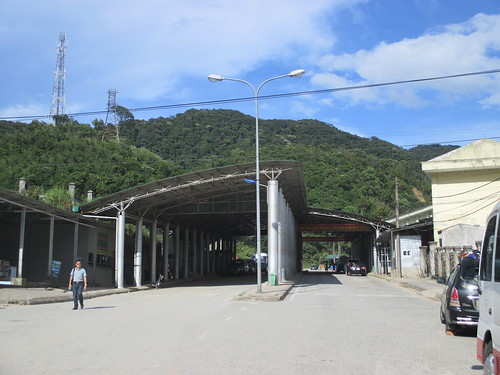
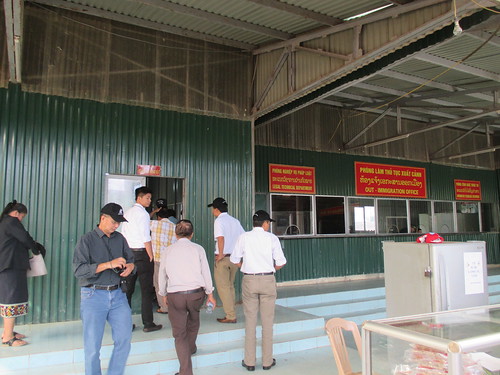
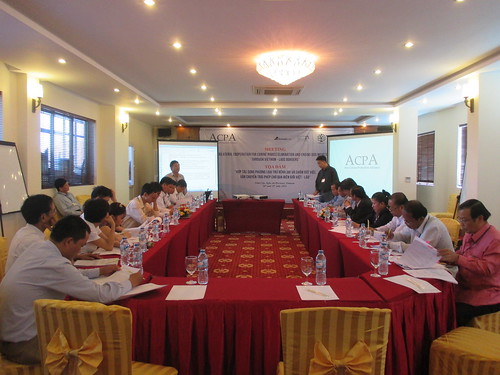
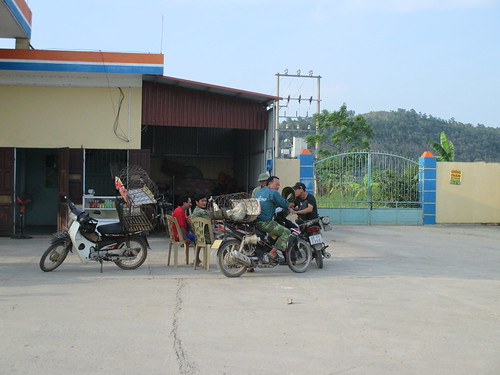




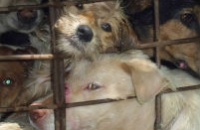 5 reasons the dog meat trade must end
5 reasons the dog meat trade must end
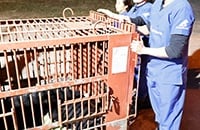 New year, new home for Christmas the Bear!
New year, new home for Christmas the Bear!
 Veterinary welfare training – pain management
Veterinary welfare training – pain management